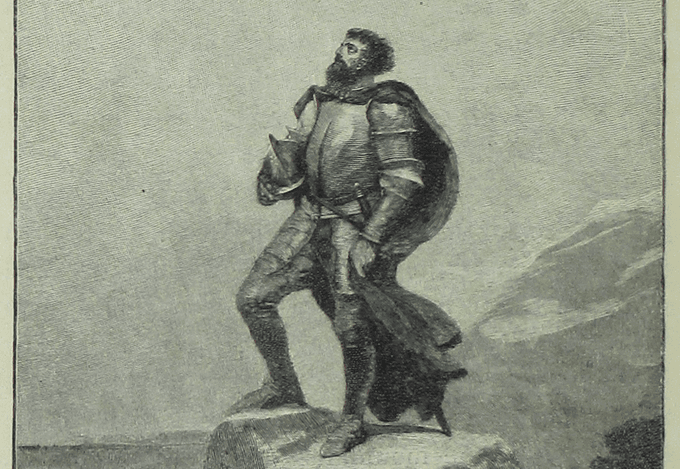Poem of the Day: ‘On First Looking Into Chapman’s Homer’
Keats plunges headlong into the trope of reading as exploration, adventure, and discovery. To open Chapman’s Homer, the poem asserts, is to enter a new world of marvels.

In 1611, the English poet, playwright, and classicist George Chapman (1559–1634) published a complete translation of Homer’s “Iliad.” Thus, for the first time, did the ordinary seventeenth-century English reader hear this voice of antiquity in a modern tongue.
The publication of Chapman’s work was an event in ways that are hard for us to appreciate. In 1651, the Presbyterian minister-poet Samuel Sheppard (1624–1655) eulogized Chapman’s achievement:
What none before durst ever venture on
Unto our wonder is by Chapman done,
Who by his skill hath made Great Homer’s song
To vaile its bonnet to our English tongue,
So that the learned well may question it
Whether in Greek or English Homer writ?
But by far the most famous tribute to Chapman’s achievement — the sole reason many of us in the twenty-first century remember Chapman’s name at all — is the sonnet by John Keats (1795–1821), today’s Poem of the Day. What’s striking in this Petrarchan sonnet, especially in contrast to Sheppard’s poem, is that instead of a plodding sermon-in-couplets praising Chapman, Keats plunges headlong into the trope of reading as exploration, adventure, and discovery.
To open Chapman’s Homer, the poem asserts, is to enter a new world of marvels. And even if it Keats got his Spanish explorers wrong — it was Balboa, not “stout Cortez,” who first beheld the Pacific Ocean — we can’t help being struck, ourselves, at the end of the poem, by their “wild surmise,” as they fall silent on that “peak in Darien.” This, says Keats, without having to belabor his point — this is what it’s like. And even if we’ve never opened Chapman ourselves, we know what he means.
On First Looking into Chapman’s Homer
by John Keats
Much have I traveled in the realms of gold
And many goodly states and kingdoms seen;
Round many western islands have I been
Which bards in fealty to Apollo hold.
Oft of one wide expanse had I been told
That deep-browed Homer ruled as his demesne;
Yet never did I breathe its pure serene
Till I heard Chapman speak out loud and bold:
Then felt I like some watcher of the skies
When a new planet swims into his ken;
Or like stout Cortez when with eagle eyes
He stared at the Pacific — and all his men
Looked at each other with a wild surmise —
Silent, upon a peak in Darien.
___________________________________________
With “Poem of the Day,” The New York Sun offers a daily portion of verse selected by Joseph Bottum with the help of the North Carolina poet Sally Thomas, the Sun’s associate poetry editor. Tied to the day, or the season, or just individual taste, the poems are drawn from the deep traditions of English verse: the great work of the past and the living poets who keep those traditions alive. The goal is always to show that poetry can still serve as a delight to the ear, an instruction to the mind, and a tonic for the soul.
